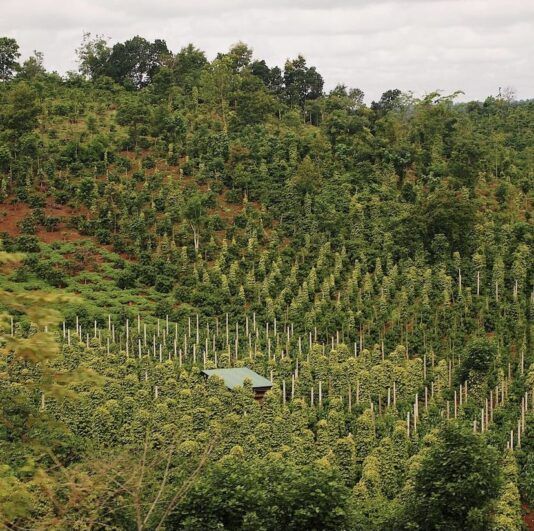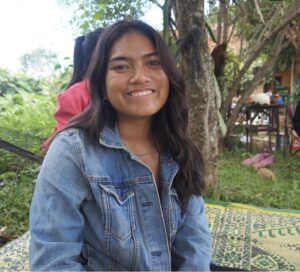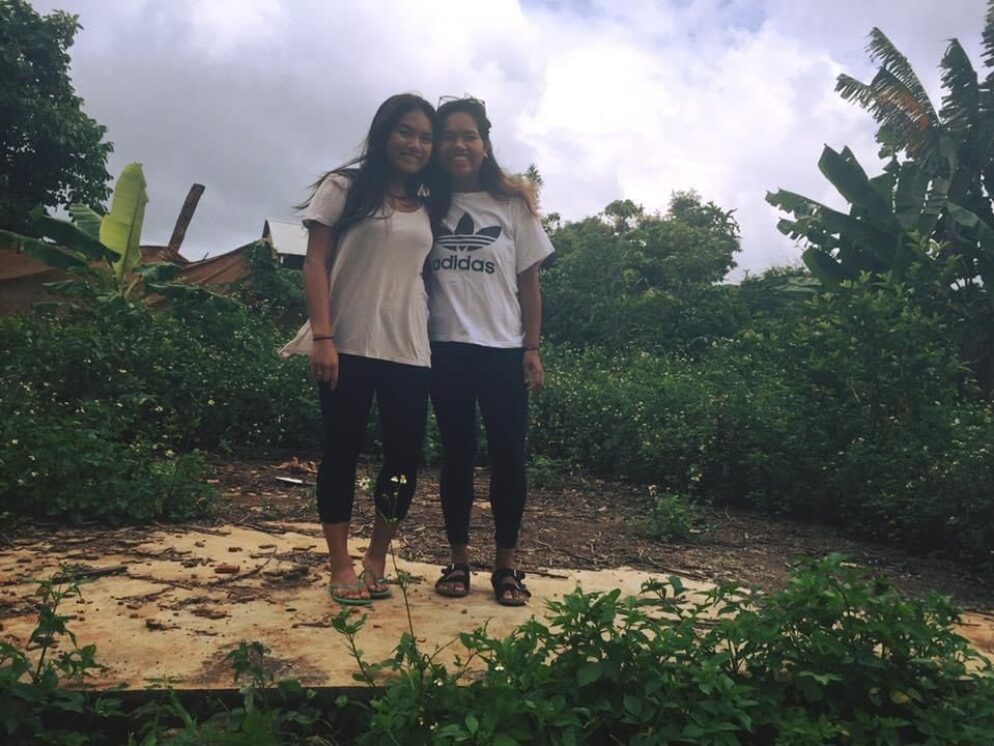by Phun H
Tucked along the central highlands in present day Vietnam sits my family’s village. The hills are lined with stout coffee trees and woody peppercorn vines. Together, these two crops sustain the livelihoods of many of the villagers here. On my last visit to Vietnam, my aunt guided me along the rows of coffee trees that used to be my parents’ before we left Vietnam. She described the long hours and the strenuous work and how my mother would carry my siblings on a sling and simultaneously tend to the harvest. As we lingered amongst the trees, she told me we had one more stop: my birth home. My aunt’s motorbike stopped a few hundred feet from her house in an overgrown and unkempt part of our village. There, the concrete foundation of my birth home sits.
Although the weeds have grown between the cracks of the structure, it is one of a few standing artifacts of my life as a young child growing up here. My aunt told me stories of the mischief and trickery my siblings and I would have together in that home. I was four when my family left that home behind. My mother wrapped me up in that same sling and led my siblings and me through the wilderness of Vietnam into Cambodia. The men of my community had already made their way to Cambodia; the women and children followed suit shortly thereafter, traversing the dense jungle foliage via the instructions that the men had sent back. As a child, I was blissfully ignorant of what the journey ahead meant for my life.

My family is Bunong, one of many ethnic and Indigenous tribes within the larger Montagnard umbrella. During French colonization, the Indigenous and ethnic tribes of the Central Highlands were categorized as Montagnard or mountain people and were differentiated from the Kinh Viet. Montagnard folks were evangelized by French and American missionaries, used for guerilla warfare by American troops during the American War in Vietnam, and subjected to persecution, discrimination, and “re-education” as a consequence. Montagnards were frequently disarmed of our agency and taken advantage of by colonial and imperialist forces. This history is woven into my family’s story. For my parents, the only way they saw to create a new story for us was to leave our homeland.
I don’t remember the leeches that crawled up our legs as we walked through the jungle or the large warehouse that served as a refugee camp in Cambodia. Instead, my childhood memories were of foraging wild berries and eating smashed up MAMA noodle packets with my sister behind the apartment complex in Greensboro, North Carolina where we were resettled. My adolescence was defined by the new mischief and trickery that my siblings and I brought along to our home in Greensboro. Although the complex wasn’t Dak Mil village, it carried with it a sense of belonging; of community care and interconnectedness. It was a place where your aunt would send you home with a warm bowl of stewed eggplants for your family to enjoy and then your mother would send you right back over with a bowl of stewed gourds in exchange. It was a village with transplanted stories, traditions, and cultures.

The year 2022 will mark 20 years of my family’s resettlement and to earn the opportunity to uplift my Montagnard community through my work at SEARAC is a full circle moment for me. To make space and be embraced at an organization whose legacy of the 1980 Refugee Act is directly tied to my own path is humbling. The stories and experiences of Montagnards are too often invisibilized and silenced, our traumas unheard and our healing neglected. This experience is not specific to just Montagnard folks, but ethnic and Indigenous communities broadly. I am proud to be part of an organization that lives, breathes, and moves for social equity. May we continue to build upon the foundation of collective liberation that our ancestors fought for and create a home where Black and Brown voices are centered, held, and loved.
Phun is SEARAC’s Policy Associate. You can email her here.
Photo caption at top: Phun (left) with her older sister, Sun, standing on the foundations of their birth home in their village.

